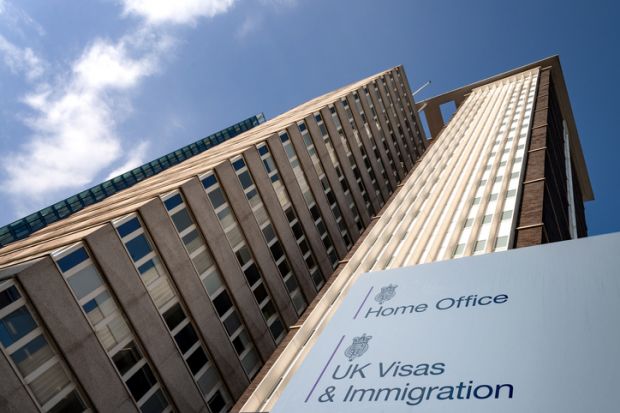In response to record migration figures, the front page of the UK’s “newspaper of record”, The Times, splashed on Friday morning with “Foreign students face ban from universities”. It is hard to think of a worse, or less well timed, story for universities up and down the UK.
In Monty Python’s Life of Brian, John Cleese’s character famously asks, “Apart from the sanitation, the medicine, education, wine, public order, irrigation, roads, a fresh water system, and public health, what have the Romans ever done for us?” Today, the question is “what have international students ever done for us?”
The answer is just as rich. International students make UK university campuses more diverse, improving the learning environment. They make our institutions more financially sustainable by making courses viable and cross-subsidising research. In some instances, they become the academics of tomorrow, pushing forward the frontiers of knowledge.
But the benefits to the UK of hosting hundreds of thousands of international students each year are not limited to universities. We at the Higher Education Policy Institute have shown more than once – in work published with Kaplan, Universities UK’s International Unit and London Economics – that the presence of international students benefits every parliamentary constituency in the country. We have also shown that the small minority of international students from each cohort who stay in the UK to work benefit the Exchequer to the tune of over £3 billion. That is a lot of NHS operations.
We have even shown the benefits to the UK of all the additional soft power accrued by educating the leaders of tomorrow. Incredibly, over one-quarter of countries in the world have a monarch, president or prime minister who was educated in the UK tertiary sector.
It is not just those of us who work in the UK higher education sector who talk up these sorts of benefits. Research published by the government recounts the story of a former Chinese PhD student at the University of Cambridge, who worked at China’s central bank. He told the researchers: “[You] have a friend down in China. [Cambridge is] my second hometown, always. When I have a negotiation with Bank of England, I always go kind of emotionally bonded…When the Bank of England or other UK people visit me…I will [treat them] like family, quite like a kind of large family, like an old friend.”
In short, international students come here, spend loads of money, make our society better, then generally go home again with warm feelings about the UK. The minority who stay tend to fill areas of acute skills shortages.
The UK does not have so many brilliantly successful sources of foreign income that we can afford to restrict our income from international students and pretend it will make no difference to our way of life. Moreover, it is not as if we are selling something bad: we are selling exposure to British culture, to Western society and to a diverse and (generally) tolerant society. In many respects, it is amazing that people want to pay us so much so that we can benefit from their presence.
Two people who instinctively understand such things are Rishi Sunak, whose rise to the top was feted in India, and Jeremy Hunt, who made his money from advertising UK education courses. Hunt is married to a Chinese national whom he met while her job was recruiting Chinese students for the University of Warwick.
So the numbers and the anecdotes all point in one direction, and many of those in power know it. Why, then, are we seemingly in an endless doom loop, in which we have to forever repeat the same old messaging? It is because, unlike other countries and unlike the UK in the past, we give complete control over migration policy to the Home Office, which often seems to regard its primary job as keeping foreigners out of the country.
The Home Office does have to respond to voters’ real concerns about migration and ensure the UK has secure borders. But they tend to go after students because it can often seem the easiest way to keep the numbers down. So it is time for the Home Office’s influence in Whitehall to be watered down by sharing policy responsibility for international students with other government departments that have a direct interest in them: principally, the Department for Education, the Department for International Trade and the Treasury.
I would like to see some positive new policies. For example, now that we have surpassed the Boris Johnson government’s target of 600,000 international students, I would like to see a new target of 1 million. I would like to see a longer post-study work visa for former international students so that employers can recruit the staff they need. I would also like to see more thought given to how we can build up enrolment from young people in European Union countries, which has taken a hammering since Brexit.
But our first priority must be to stop telling international students that we don’t want them here when we desperately need them.
Nick Hillman is the director of the Higher Education Policy Institute.
Register to continue
Why register?
- Registration is free and only takes a moment
- Once registered, you can read 3 articles a month
- Sign up for our newsletter
Subscribe
Or subscribe for unlimited access to:
- Unlimited access to news, views, insights & reviews
- Digital editions
- Digital access to THE’s university and college rankings analysis
Already registered or a current subscriber?








